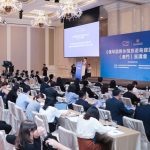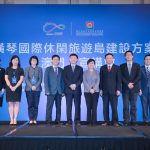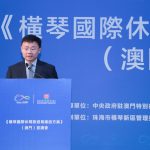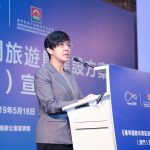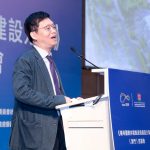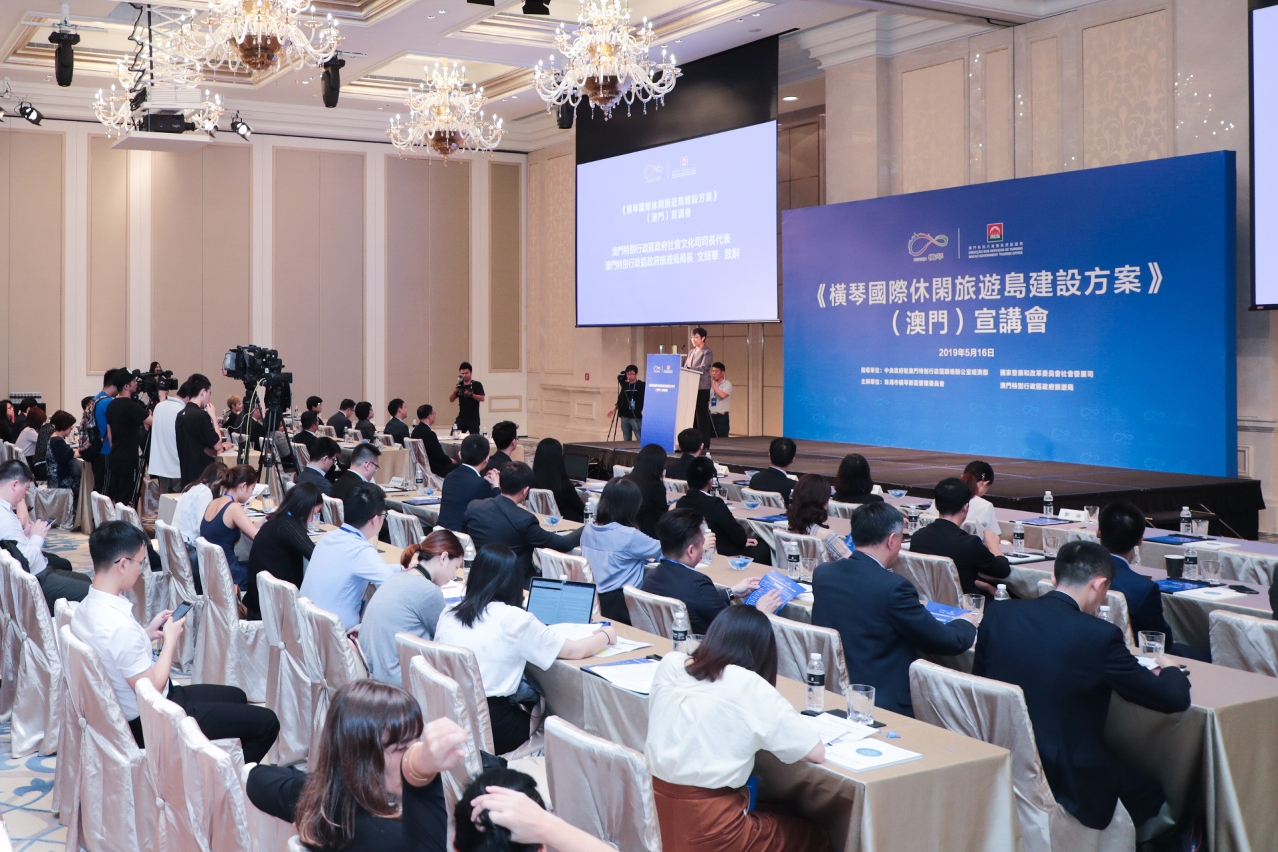 Presentation session of the “Hengqin International Leisure Tourism Island Construction Scheme” in Macao
Presentation session of the “Hengqin International Leisure Tourism Island Construction Scheme” in Macao
The presentation session of the “Hengqin International Leisure Tourism Island Construction Scheme” (referred to as the “Construction Scheme”) was held in Macao today (16 May). The Department of Social Development of the National Development and Reform Commission of the People’s Republic of China delivered a themed presentation under the topic of “Build Hengqin International Leisure Tourism Island and support development of Guangdong-Hong Kong-Macao Greater Bay Area into a world-class travel destination”.
With the consent of the State Council of the People’s Republic of China, the “Hengqin International Leisure Tourism Island Construction Scheme” was launched officially in recent months. The Administrative Committee of Hengqin New Area and the Macao Government Tourism Office (MGTO) jointly organized a presentation session of the “Hengqin International Leisure Tourism Island Construction Scheme” in Macao under the tutelage of the Economic Affairs Department of the Liaison Office of the Central People's Government in the Macao Special Administrative Region and the Department of Social Development of the National Development and Reform Commission. A representative of the Department of Social Development of the National Development and Reform Commission came to Macao to give a themed presentation.
Deputy Secretary of Party Committee of Hengqin New Area of Zhuhai Municipality, Li Weihui, and MGTO Director Maria Helena de Senna Fernandes, both delivered remarks at the presentation session. Director Senna Fernandes expressed that Hengqin and Macao can join hands to explore the new cooperation scheme for development of the international leisure tourism island, leverage the opportunities and beneficial measures brought by the Construction Scheme to expand the development potential of Macao as a travel destination, foster economic diversification in Macao, and push forward the integrated tourism development of both destinations. The Construction Scheme will contribute immensely to Macao’s development as a world centre of tourism and leisure, as well as cooperation between Guangdong, Hong Kong and Macao. More importantly, it will help building the Greater Bay Area into a world-class travel destination.
Deputy Chief of Division of Quality of Life of Department of Social Development of the National Development and Reform Commission, Yuan Hao, was invited to elaborate on four topics including the background and highlights of the Construction Scheme, major considerations in line with Macao’s development into a world centre of tourism and leisure, as well as aligned progress of Macao’s development into a world centre of tourism and leisure and Hengqin’s development into an international leisure tourism island. Yuan Hao also proposed ideas on how to foster the respective developments of Macao and Hengqin.
The presentation session engaged around 100 guests including Deputy Chief of Division of Quality of Life of Department of Social Development of the National Development and Reform Commission, Yuan Hao, Assistant Director-General of Economic Affairs Department of the Liaison Office of the Central People’s Government in the Macao SAR, Xu Jun, Deputy Secretary of Party Committee of Hengqin New Area of Zhuhai Municipality, Li Weihui, Deputy Director of Zhuhai Culture, Radio, Television, Tourism and Sports Bureau, Wu Xiangming, , and representatives of Zhuhai’s tourism industry and the press from the Mainland. Local personages include MGTO Director Maria Helena de Senna Fernandes, Vice President of the Institute for Tourism Studies, Florence Ian, as well as representatives of the local travel trade and media.


